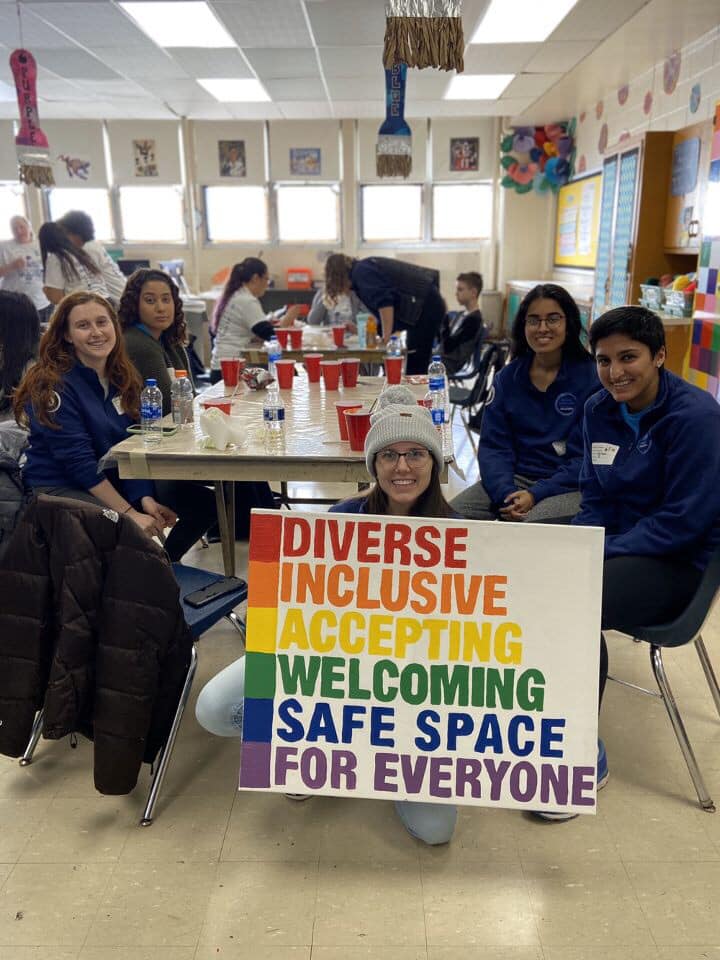National Health Corps (NHC) is committed to its vision of a nation where all people have the access to services and knowledge necessary to lead healthy, productive, and fulfilling lives. NHC is not only committed to eliminating health inequities, but also to eliminating the oppressive structures* that cause them. In this commitment, we strive to represent diversity and inclusiveness and we join in a shared vision of a commitment to action. We are holding ourselves accountable through ongoing equity impact assessments of all components of our program, including collecting and analyzing demographic data to ensure we increase representation of and retain historically underrepresented populations. We value the unique capabilities, experiences, and identities each employee, member, and community member contributes to our program. National Health Corps also recognizes past inequities in the history of the United States and specifically in the U.S. health system. We are addressing these inequities so our future world includes diversity of all kind that is visible, embraced and celebrated.
*NHC defines "structural oppression" as a form of institutional discrimination against individuals or groups which disadvantages some or advantages others based on shared characteristics. It can be intentional or unintentional and involves systems and structures as they exist through policies, protocols, procedures, processes and practices embedded in a history or legacy of unquestioned or accepted norms, habits and symbols. At the core of oppression…culturally embedded patterns of isolation, separation and dominion over nature (e.g., disconnect source, distort story, dissociate body, distance emotion).
Over an eight-month period between June 2020-January 2021, National Health Corps created a five-year program strategic and action plan that has a razor focus on priorities and strategies aimed at reducing and eliminating structural oppression. The plan was co-created by NHC staff, members, alumni, host site partners, service partners, and the wider public.
You can access the NHC 2021-2025 Strategic/Action Plan here.
National Health Corps's program design not only focuses on reducing social determinants of health that lead to health disparities, but also focuses on reducing the underlying oppressive systems that cause health disparities. This aligns with AmeriCorps 2021 funding priority area of removing structural racial inequities, and 2024 funding priority area of supporting organizations serving historically underrepresented and underserved individuals.
In this regard, beginning in March 2023, all NHC positions include at least 15% of members' time spent on activities focused directly on reducing structural oppression at NHC host sites and/or in communities served.
NHC provides cultural responsibility trainings and reflective activities to all members throughout the service term. The goal of the trainings and activities are for all NHC members to demonstrate appreciation and respect for people across all dimensions of identity, and to adapt behaviors to see and accept those who have perspectives and experiences different from their own. Throughout the service term, members challenge themselves and others to examine and address structural oppression and bias and the ways it contributes to health disparities. Members explore their own privilege and take active steps to increase equity in all service and community settings to create an inclusive, trusting, respectful community for all.
Required trainings include:
- Structural Racism Against Black Americans
- Structural Racism Against Indigenous People (watch this training on NHC's YouTube Channel here!)
-
Cultural responsibility overview
-
Culturally responsible practice with two relevant cultural/ethnic populations in NHC service communities
-
Race and public health in the United States
-
Sexual orientation, gender identity, and public health in the United States
Examples of some trainings held include:- Race, Placemaking, and Health in Chicago
- Food Insecurity and Health
- Intersectionality & the Policing of Black Bodies in the United States
- Anti-Racism and Impact on Racial Injustice in Medicine
- Racism Across Public Health Systems & Impacts on Health Disparities and Outcomes
- Identity, Power, and Oppression
- Racism in Healthcare and Unconscious Bias
- Creating Affirming Environments and Support LGBTQ+ patients
- Trauma-Informed Care

